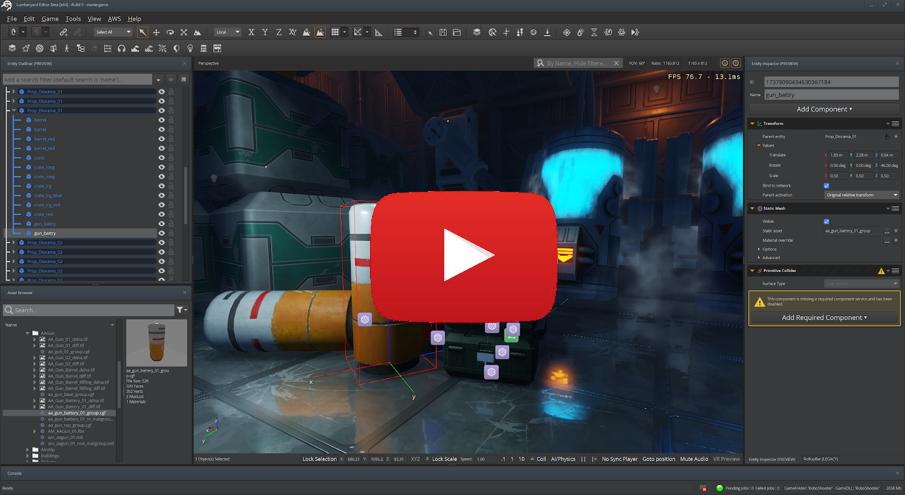Choosing the Right Game Engine for Your Project: Expert Tips for 2024
Developing a game is an exciting journey – but it all starts with one critical decision: choosing the right game engine. Whether you are an indie dev creating your first 2D platformer or a seasoned studio building a AAA experience, selecting the optimal game engine can save time, reduce costs, and unlock creative potential. In this comprehensive guide, we’ll explore key factors, popular game engines, and practical tips to help you make an informed choice that perfectly matches your project’s unique needs.
Why Choosing the Right Game Engine Matters
The game engine you select acts as the backbone of your entire development process. It provides tools, rendering technology, scripting languages, and workflows that directly impact:
- Development speed and efficiency
- Visual quality and performance
- Platform compatibility and cross-device deployment
- Team collaboration and scalability
- Budget constraints and licensing costs
Choosing the wrong engine may result in roadblocks, increased overhead, or even needing to overhaul parts of your project. Conversely, the right engine can enhance creativity and help you meet deadlines smoother.
Top Game Engines to Consider in 2024
Let’s break down the most popular and widely-used game engines in the market today, along with their core strengths and ideal use cases.
| Game Engine | Type | Best For | Languages | Pricing Model |
|---|---|---|---|---|
| Unity | Cross-platform, 2D/3D | Indies, Mobile, VR/AR, Prototypes | C# | Free (personal), Subscription (Pro) |
| Unreal Engine | High-fidelity 3D | AAA games, Realistic graphics | C++, Blueprints (visual scripting) | Royalty-based, Free to start |
| Godot | 2D/3D, Open-source | Beginners, Indie devs, Custom tools | GDScript, C#, C++ | Free, Open-source |
| GameMaker Studio 2 | 2D focused | Mobile games, Beginners | GML (GameMaker Language) | Subscription-based |
| CryEngine | High-end 3D | AAA-quality visuals, FPS games | C++ and Lua | Free with royalties |
Key Factors to Consider When Choosing Your Game Engine
1. Project Scope and Genre
Define the scale and type of game you’re developing. For example, 2D platformers thrive on engines like Unity or Godot, while photorealistic AAA games typically require engines like Unreal Engine or CryEngine.
2. Platform Support
Where do you intend to release your game? If cross-platform deployment (PC, consoles, mobile, VR) is crucial, choose engines with strong multi-platform support. Unity and Unreal lead in this regard.
3. Learning Curve and Community Support
Consider your team’s experience level. User-friendly engines with vast tutorials, forums, and asset stores, such as Unity and Godot, help beginners accelerate development.
4. Licensing and Cost
Budget plays a big role. Open-source engines like Godot are free with no royalties, while Unreal Engine requires royalty payments after a revenue threshold, and Unity offers tiered subscriptions.
5. Customizability and Extensibility
Some projects need extensive engine modification and custom plugins. Open-source or C++-based engines such as Godot and Unreal offer greater flexibility in this regard.
6. Visual Quality and Performance Needs
Determine the graphic fidelity you aim to achieve. For hyper-realistic 3D visuals, Unreal is industry-leading, while Godot and GameMaker suffice for stylized or retro aesthetics.
Benefits of Choosing the Right Game Engine
- Enhanced productivity: Working within an optimized environment reduces development time.
- Higher game quality: Access to advanced tools and shaders improves visual and audio fidelity.
- Platform flexibility: Releasing on multiple devices increases audience reach.
- Community and third-party support: Leveraging plugins and shared knowledge accelerates problem-solving.
- Cost savings: Avoid expensive licensing surprises or costly reworks by making the right decision upfront.
Practical Tips for Selecting Your Game Engine
- Prototype early: Build small test projects in 2-3 candidate engines to evaluate real-world workflow.
- Analyze Scope Changes: Choose engines that can scale with project scope if you expect expansions.
- Check asset marketplaces: Ready-made models, scripts, and tools can save time.
- Join forums and communities: Ask fellow developers for feedback and shared lessons learned.
- Review documentation depth: Robust, up-to-date docs enhance learning and troubleshooting.
Case Study: How an Indie Developer Chose Godot for Their 2D Adventure Game
Jane, an indie developer on a budget, wanted to create a charming 2D pixel-art adventure. She needed an engine that was lightweight, free, and had a gentle learning curve. After prototyping in Unity and Godot, Jane found Godot’s scene system intuitive and performance stellar for 2D gameplay. Additionally, Godot’s open-source nature allowed her to customize the engine slightly to optimize for her game’s needs. Today, her game has a passionate player base and runs seamlessly on PC and mobile – all thanks to choosing the right engine at the start.
Frequently Asked Questions
Can I switch game engines mid-project?
While possible, it’s generally discouraged because it requires rewriting assets, code, and sometimes game design elements. Plan carefully to avoid costly mid-course changes.
Which game engine is best for beginners?
Engines like Unity and Godot are beginner-friendly with lots of tutorials and community support, making them ideal starting points.
Are free game engines good enough for commercial releases?
Absolutely. Many successful commercial games are made with free or open-source game engines. What matters most is how you use the engine, not its cost.
Conclusion: Make an Informed Choice to Empower Your Game Development
Choosing the right game engine is a cornerstone decision that influences your project’s success. Consider your project’s scope, technical requirements, budget, and team skill set before committing. Whether you lean towards the versatility of Unity, the power of Unreal Engine, the flexibility of Godot, or a niche 2D engine like GameMaker, picking the right tool sets you up for a smoother, more exciting game development journey.
Remember, no engine is “one size fits all,” but with careful evaluation and prototyping, you can find the perfect match that brings your game vision to life efficiently and creatively.
Happy developing!











